Description
Description
Economics O Level Revision Notes
These notes that I have compiled and prepared for the Economics O level Revision Notes and IGCSE Economics students are the first of their kind.
Firstly, these are the first notes that incorporate the changes made in the 2020 curriculum by the Cambridge International Examination board. So, these notes are updated with all the changes made by the board for the 2020 and beyond curriculum.
Secondly, these notes include a formula template which cover all important and basic formulas expected in the final exams. Thirdly, and most importantly, these notes contain a unique set of exam pointers that advise students on all the different questions and sections that appear in both papers (P1 and P2).
This is a first for any set of notes. And finally, these notes contain a comprehensive and, simultaneously, to-the-point explanation of all the important topics and sub-topics which will give students the ideal platform to perfect their theoretical foundations of the O level Economics curriculum, without needing any further book
for assistance.
Sohaib Alavi
M.Sc. Economics
Following Topics are covered in this book.
UNIT – 1 BASIC ECONOMIC PROBLEM…………………………………………………………………………..
81.1 SCARCITY ……………………………………………………………………………………………………………..
81.2 TYPES OF GOODS……………………………………………………………………………………………………8
1.3 FACTORS OF PRODUCTION ……………………………………………………………………………………….9
1.4 OPPURTUNITY COST ………………………………………………………………………………………………10
1.5 PRODUCTION POSSIBILITY CURVE (PPC) …………………………………………………………………..10
1.6 PAST PAPER PRACTICE QUESTIONS (M2016-N2018 TOPICAL QUESTIONS)
……………………….12
UNIT – 2 ALLOCATION OF RESOURCES ……………………………………………………………………… 14
2.1 MICROECONOMICS VS MACROECONOMICS………………………………………………………………….14
2.2 RESOURCE ALLOCATION AND MARKETS ROLE………………………………………………………………14
2.3 DEMAND ……………………………………………………………………………………………………………..15
2.4 SUPPLY ………………………………………………………………………………………………………………16
2.5 MARKET EQUILIBRIUM …………………………………………………………………………………………….18
2.6 CHANGES IN MARKET EQUILIBRIUM ……………………………………………………………………………19
2.7 PRICE ELASTICITY OF DEMAND (PED)……………………………………………………………………….20
2.8 PRICE ELASTICITY OF SUPPLY (PES) ………………………………………………………………………..22
2.9 MARKET ECONOMIC SYSTEM ……………………………………………………………………………………24
2.10 MARKET FAILURE ………………………………………………………………………………………………….24
2.11 MIXED ECONOMIC SYSTEM ………………………………………………………………………………………26
2.12 PAST PAPER PRACTICE QUESTIONS (M2016-N2018) ……………………………………………………27
UNIT – 3 MICROECONOMIC DECISION MAKERS………………………………………………………….. 30
3.1 MONEY AND BANKING …………………………………………………………………………………………….30
3.2 HOUSEHOLDS……………………………………………………………………………………………………….32
3.3 LABOR MARKETS …………………………………………………………………………………………………..33
3.4 TRADE UNIONS ……………………………………………………………………………………………………..38
3.5 FIRMS…………………………………………………………………………………………………………………40
3.6 PRODUCTION, COSTS AND REVENUE………………………………………………………………………….46
3.7 MARKET STRUCTURE AND MONOPOLY………………………………………………………………………..50
3.8 PAST PAPER PRACTICE QUESTIONS (M2016-N2018) ……………………………………………………53
UNIT – 4 GOVERNMENT AND MACROECONMY……………………………………………………………. 56
4.1 THE ROLE OF THE GOVERNMENT ………………………………………………………………………………56
4.2 MACROECONOMIC AIMS OF THE GOVERNMENT …………………………………………………………….56
4.3 FISCAL POLICY & TAXES…………………………………………………………………………………………58
4.4 MONETARY POLICY ……………………………………………………………………………………………….62
4.5 SUPPLY-SIDE POLICY ……………………………………………………………………………………………..63
4.6 ECONOMIC GROWTH………………………………………………………………………………………………64
4.7 EMPLOYMENT AND UNEMPLOYMENT ………………………………………………………………………….68
4.8 INFLATION AND DEFLATION………………………………………………………………………………………70
4.9 PAST PAPER PRACTICE (M2016-N2018) ……………………………………………………………………75
UNIT – 5 ECONOMIC DEVELOPMENT…………………………………………………………………………… 78
5.1 DEVELOPMENT……………………………………………………………………………………………………..78
5.2 POPULATION ………………………………………………………………………………………………………..82
5.3 PAST PAPER PRACTICE QUESTIONS (M2016-N2018) ……………………………………………………86
UNIT – 6 INTERNATIONAL TRADE AND GLOBALIZATION ……………………………………………. 88
6.1 INTERNATIONAL SPECIALIZATION……………………………………………………………………………….88
6.2 FREE TRADE AND PROTECTIONISM…………………………………………………………………………….895
6.3 EXCHANGE RATES …………………………………………………………………………………………………91
6.4 STRUCTURE OF THE CURRENT ACCOUNT OF THE BALANCE OF PAYMENTS ………………………..94
6.5 PAST PAPER PRACTICE QUESTIONS (M2016-N2018) ……………………………………………………96
EXAM POINTERS……………………………………………………………………97
FORMULA INDEX…………………………………………………………………………………….100
BIBLIOGRAPHY/REFERENCES…………………………………………………………………….102

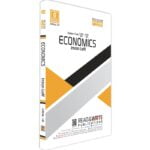
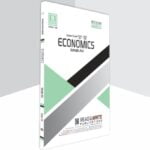
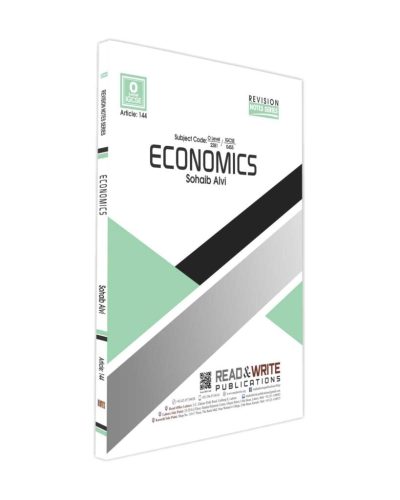

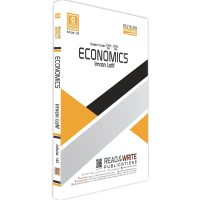
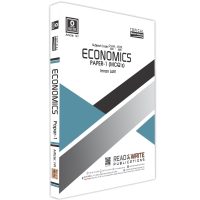
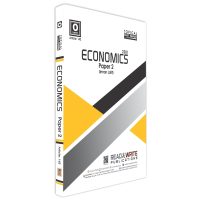
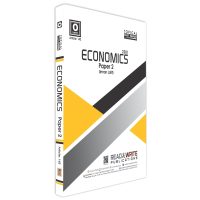
Reviews
There are no reviews yet.